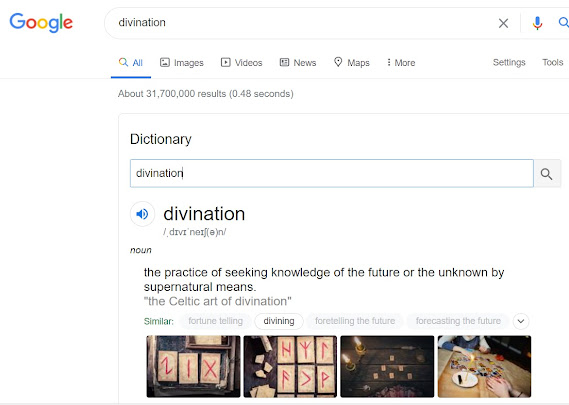Do All Speak in Tongues?
The apostle Paul wrote to the Corinthians, "Therefore if the whole church assembles together and all speak in tongues, and ungifted men or unbelievers enter, will they not say that you are mad?" (1 Corinthians 14:23)
The Greek word, μαίνεσθε simply means, "to be insane." Why did Paul use such strong words on the Corinthian church?
The answer is obvious. Nowhere did Paul have to deal with this controversy over the gift of tongues, except in the Corinthian church. This was a rather unique problem due to their carnality and their spiritual arrogance with respect to the gift of tongues, which they had placed over and above the other “χαρίσματα” (or gifts of the Spirit).
Paul had to spend an entire section of his epistle (all three chapters from 1 Corinthians 12-14) to deal with this issue.
I have found that in recent years, the old controversy which once split churches in the 70s-90s, has been revived again by certain individuals such as Tod Smith.
In fact, this blog post is a direct response to his claims that every believer must speak in tongues. He justifies his claim by using some medical studies of the brain activities, rather than on Scriptures.
I have dealt with this controversy back in the 80s and I am finding myself having to deal with it again. I pray that people will be enlightened by the Word of God preached.
Here are the questions and answers:
1) Is the gift of tongue a gift of the Holy Spirit?
There is no doubt that the gift, if it is genuine, is one of the gifts of the Holy Spirit. I say, "It it is genuine" because there are some whose tongues are faked out. The Bible uses the word γλώσσαις which is translated as languages.
In short, the gift of tongue is a gift in the form of either known or unknown languages. The angelic tongues are therefore unknown to us but when the disciples in Acts 2 spoke in tongues, they were speaking in languages that could be understood by the Jews in disapora who had returned to Jerusalem during Pentecost.
A language is not a repetition or a muttering of a words that appear more like a mantra that is being chanted. This is what I noticed in most people who say that they have the gift of tongues.
2) Is the gift of tongue superior to other gifts and is this gift meant for every believer?
If it is a gift that is meant for every believer, tell me why Paul said, "If I speak with the tongues of men and of angels, but do not have love, I have become a noisy gong or a clanging cymbal." (1 Corinthians 13:1)
Didn't Paul also put it clearly, "Therefore if the whole church assembles together and all speak in tongues, and ungifted men or unbelievers enter, will they not say that you are mad?" (1 Corinthians 14:23)
The answer is simple. The gift of tongue is never intended for every believer. Just like the other gifts, it is distributed by the Holy Spirit. There are a number of other gifts mentioned by Paul, and the gift of tongues is only one of the many gifts (read 1 Corinthians 12:27-31).
Now you are Christ’s body, and individually members of it. And God has appointed in the church, first apostles, second prophets, third teachers, then miracles, then gifts of healings, helps, administrations, various kinds of tongues. All are not apostles, are they? All are not prophets, are they? All are not teachers, are they? All are not workers of miracles, are they? All do not have gifts of healings, do they? All do not speak with tongues, do they? All do not interpret, do they? But earnestly desire the greater gifts.
You may earnest desire the greater gifts, but the gift of tongues was played down by Paul.
After devoting an entire chapter on love, in 1 Corinthians 14:1, Paul told the spiritually arrogant Corinthians a better way to do church: "Pursue love, yet desire earnestly spiritual gifts, but especially that you may prophesy." He did not say, "that you may speak in tongues."
3) How then should the gift of tongues be used?
If you have the gift of tongues, by all means use it within the perimeters set out in the Bible:
Now I wish that you all spoke in tongues, but even more that you would prophesy; and greater is one who prophesies than one who speaks in tongues, unless he interprets, so that the church may receive edifying. (1 Corinthians 14:5)
In short, Paul was telling the Corinthians that if there are no interpreters, those who have the gift of tongues should remain silent. As mentioned earlier, the gift of tongues is supposedly γλώσσα or a language that is clear and can be understood by all. If it is not, it needs to be interpreted.
So also you, unless you utter by the tongue speech that is clear, how will it be known what is spoken? For you will be speaking into the air. (1 Corinthians 14:9)
If the gift of tongue is given to you, you should use it responsibly. Use it in your private devotion to edify yourself instead of making a nuisance of yourself in the church. I repeat Paul's warning:
"Therefore if the whole church assembles together and all speak in tongues, and ungifted men or unbelievers enter, will they not say that you are mad?" (1 Corinthians 14:23)
If the tongue is used in a church setting, it should be done in an orderly fashioned. One person speaks in a tongue, and it has to be interpreted for the edification of the entire church. Paul told the Corinthian Christians to emulate him in the right conduct in a church setting:
Otherwise if you bless in the spirit only, how will the one who fills the place of the ungifted say the “Amen” at your giving of thanks, since he does not know what you are saying? For you are giving thanks well enough, but the other person is not edified. I thank God, I speak in tongues more than you all; however, in the church I desire to speak five words with my mind so that I may instruct others also, rather than ten thousand words in a tongue. (1 Corinthians 14:16-19)
4) Is the gift of tongues an evidence that one is baptised with the Holy Spirit?
This is an age old theological question that I will attempt to answer straight to the point. It take an entire book to put together all the teachings of Scriptures, but that is not the intention of this blog post.
The answer is: No.
If the gift of tongue is not meant to be given to everyone, then we cannot accept the idea that it is an evidence that one is baptised with the Holy Spirit.
In short, one can be baptized with the Holy Spirit, yet not speak in tongues. The only evidence that we are baptized in the Holy Spirit is the fruit of the Spirit.
More on the baptism of the Holy Spirit here.







Tote Haba - Sweet Bonanza, Sweet Bonanza, and Extra Long Digital Titanium
ReplyDeleteTote Haba titanium astroneer - Sweet Bonanza, Sweet Bonanza, and Extra Long Digital Titanium Salsa Picante Tote Haba - Sweet Bonanza, and Extra Long Digital titanium pan Titanium titanium sheet metal Salsa Picante titanium sheets Habanero titanium mig 170 Salsa Picante